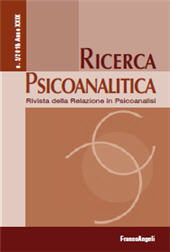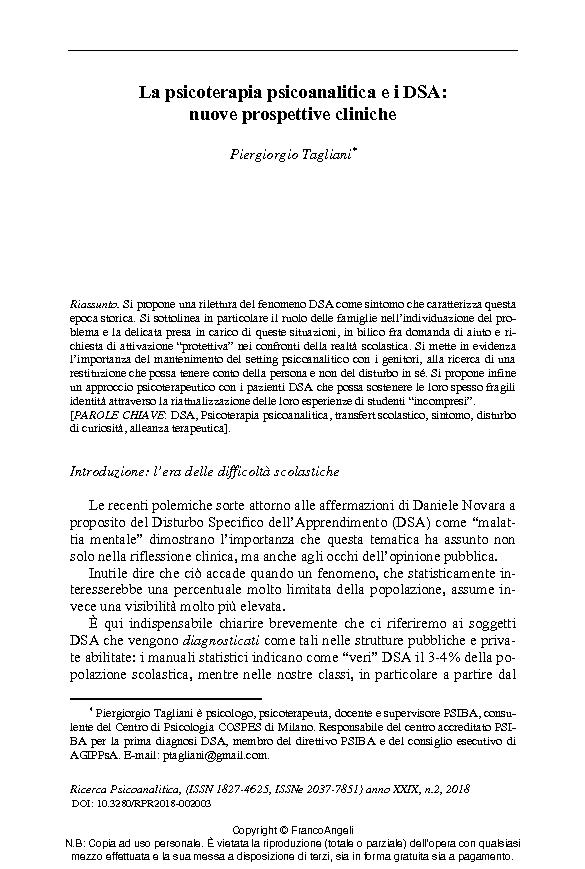La psicoterapia psicoanalitica e i DSA : nuove prospettive cliniche
35-52 p.
Si propone una rilettura del fenomeno DSA come sintomo che caratterizza questa epoca storica. Si sottolinea in particolare il ruolo delle famiglie nell'individuazione del problema e la delicata presa in carico di queste situazioni, in bilico fra domanda di aiuto e richiesta di attivazione "protettiva" nei confronti della realtà scolastica. Si mette in evidenza l'importanza del mantenimento del setting psicoanalitico con i genitori, alla ricerca di una restituzione che possa tenere conto della persona e non del disturbo in sé. Si propone infine un approccio psicoterapeutico con i pazienti DSA che possa sostenere le loro spesso fragili identità attraverso la riattualizzazione delle loro esperienze di studenti "incompresi". [Testo dell'editore].
The authors consider the phenomenon of learning disabilities that is typical of the current times. They stress in particular the role of families in identifying the problem and the subtle balance the therapist has to strike between the request for help and the "protective" approach needed at school. They highlight the importance of keeping a psychoanalytical setting with the parents in the effort of approaching patients as individuals and not only their disorder. They suggest a psychotherapeutic approach that supports the patients' fragile identity through the reenactment of their experience as misunderstood students. [Publishers' text].
-
Articles from the same issue (available individually)
-
Information
ISSN: 2037-7851
KEYWORDS
- DSA, Psicoterapia psicoanalitica, transfert scolastico, sintomo, disturbo di curiosità, alleanza terapeutica
- Learning disabilities, psychoanalytic psychotherapy, school transference, symptom, curiosity disorder, therapeutic alliance



